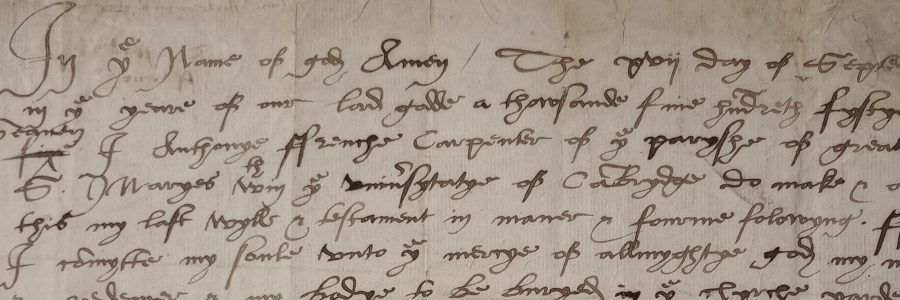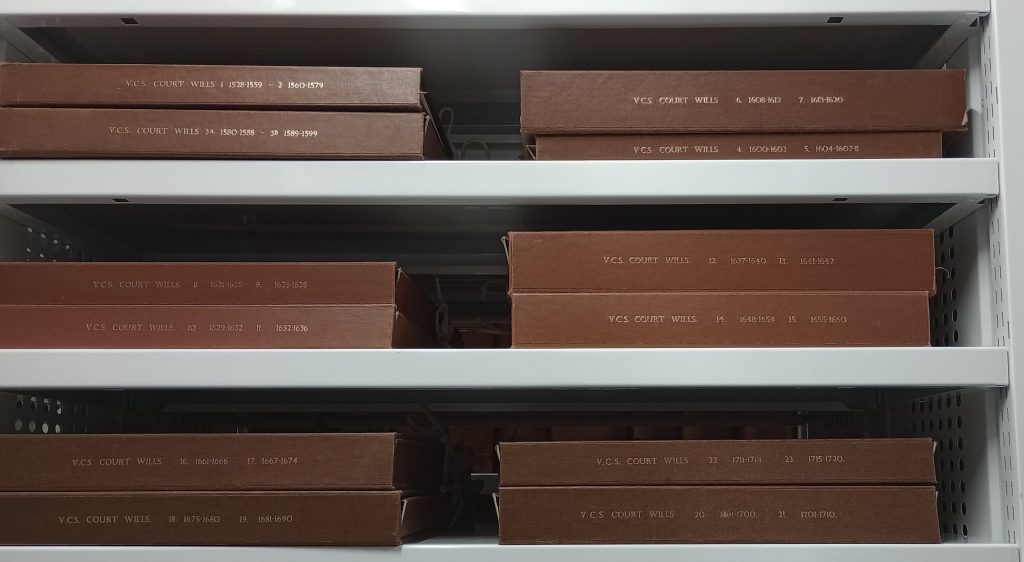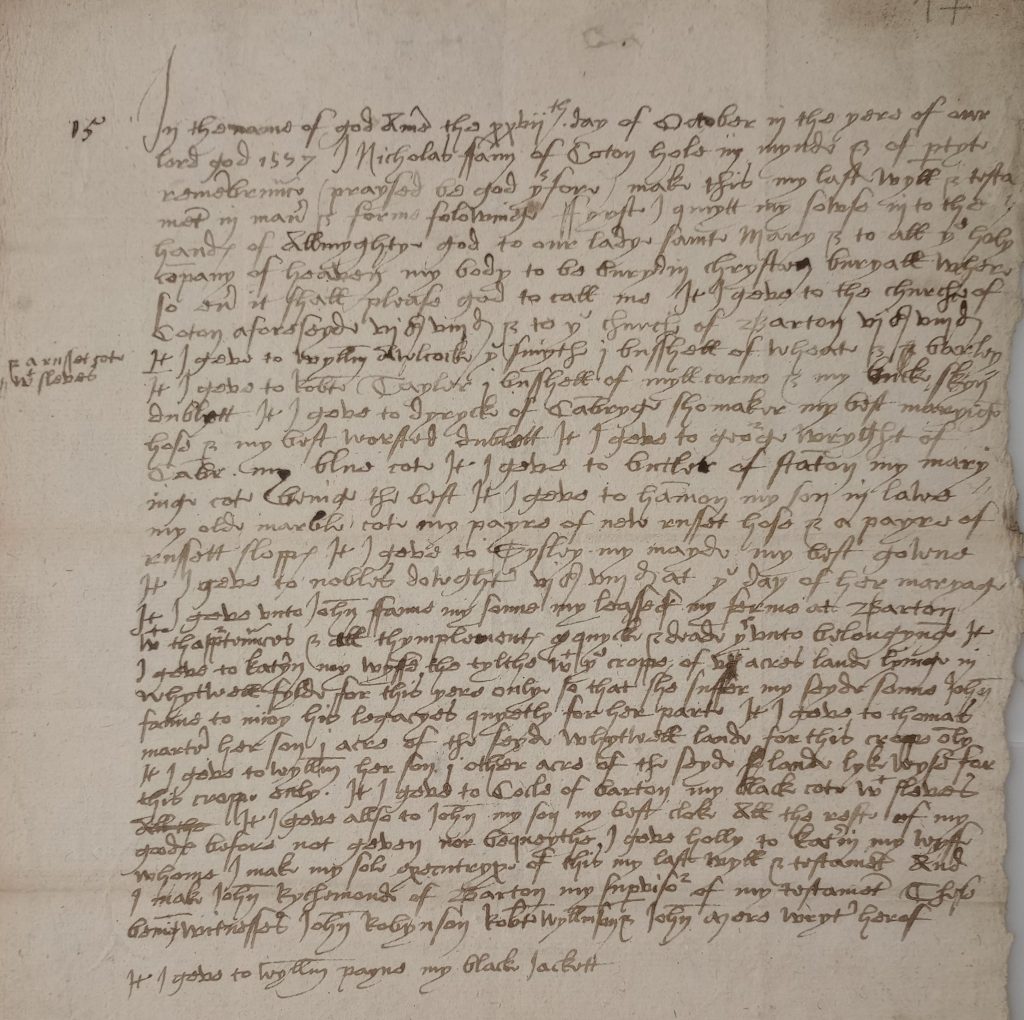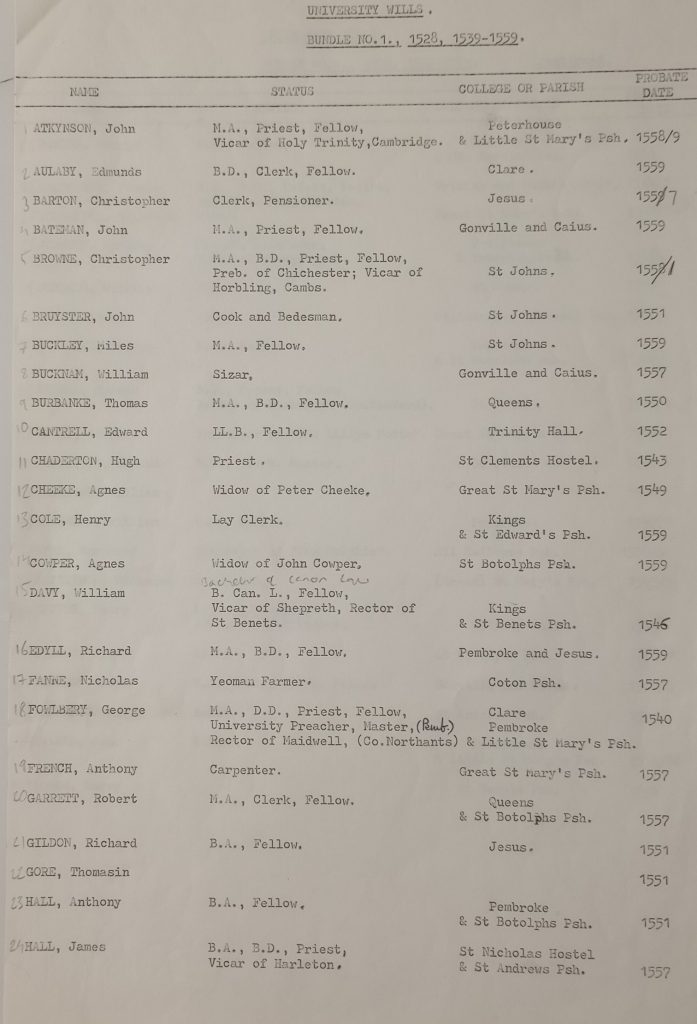
Work experience in the archives
A guest post by Lucy Graham.
For the last three weeks, I have been lucky enough to explore daily life behind the scenes in the UL during my work experience. I have been getting to know the amazing staff and the incredible work they do on the special collections the library holds.
I had been a fairly frequent visitor to the UL over the course of my studies. After the first fateful visit as a fresher when my friend and I managed to get lost in the stacks of North Front until we were rescued by a passing staff member, I grew to love the UL. Having spent many a productive hour working on the sunlit desks of South Wing Three, I thought I knew the UL. Doing work experience has proved me utterly wrong! I had always considered the UL to be a labyrinth but venturing to the Manuscripts Reading Room on the first day felt like entering a terra incognita. Like Theseus, I needed a ball of string to mark my way!
I have been welcomed into the Digital Content Unit, Maps, Rare Books, and behind the desk of the Manuscripts Reading Room. These visits have given me enormous respect for the staff who are so knowledgeable and passionate about the work they do. I was blown away by the Digital Content Unit. The range of equipment and the attention to detail by the staff allows the objects to be rendered as faithfully as possible in their digital forms. Similarly, the few hours I spent behind the desk of the Manuscripts Reading Room was eye-opening. I was given the ostensibly simple task of fetching a handful of manuscripts for conservation. First making a note of the location, then trying to match up the room, case number, and the size of the manuscript, while marking everything on a slip so my steps could be traced, I have never concentrated so hard in my life! The pride I felt in achieving this after 30 mins was dwarfed in the knowledge that the staff do this in 10 minutes repeatedly during the day.
I have been mainly working on two projects: sorting through the papers of Philip Lucas, an agent in the Caribbean involved in the Transatlantic slave trade during the early nineteenth century, and transcribing the box lists for the original wills found in the Vice Chancellor’s Court records. Sorting through the collection of business accounts, personal correspondence, and household bills of the family meant I could create folders according to the type of document and people involved, ordered by year. As a researcher it is far too easy to take for granted the work of the archivist in creating box lists and ordering the material first! The retro-conversion of the surviving wills presented a different process. By transcribing the names, dates, and locations of the tradesmen, clergy, widows, landowners, College staff, and fellows who made wills in the period 1528-1765 into the catalogue, it will now be possible to access this information online.
I have thoroughly enjoyed my work experience and want to say a huge thank you to everyone involved!
Lucy created 761 new catalogue entries and sorted three boxes of uncatalogued archive material – thank you, Lucy!



